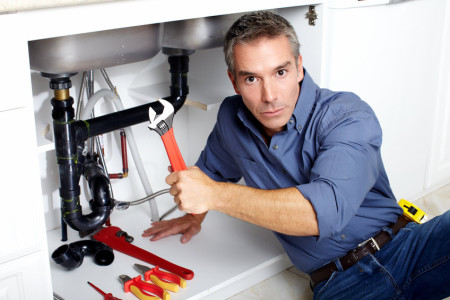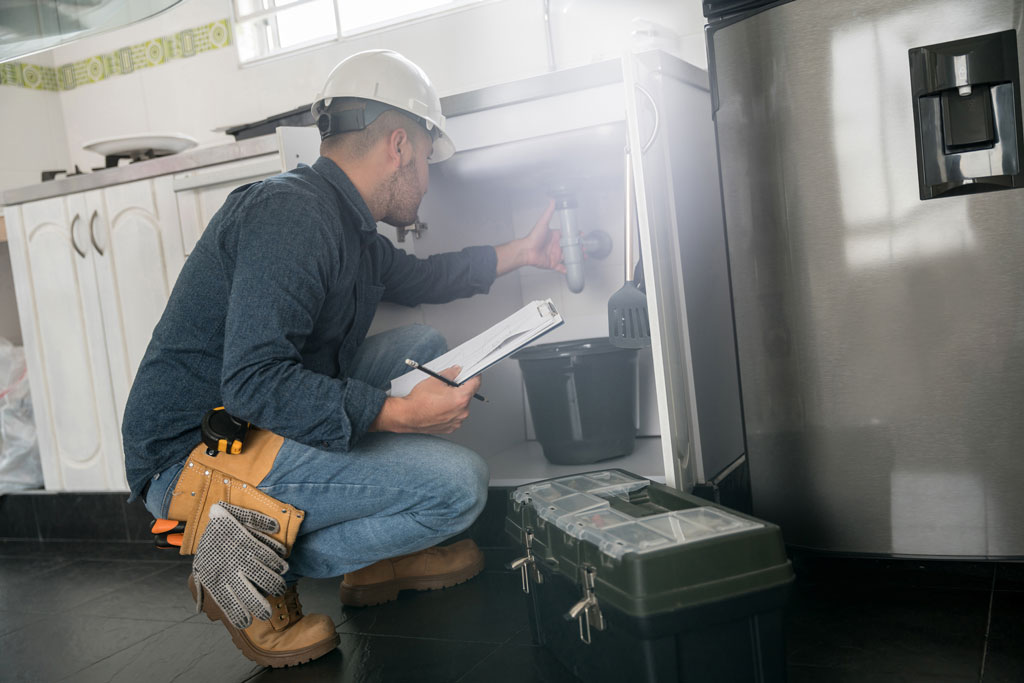Essential Plumbing Tips for Urgent Issues: Steps to Take Until Assistance Arrives
Essential Plumbing Tips for Urgent Issues: Steps to Take Until Assistance Arrives
Blog Article
This great article which follows relating to What to Do During a Plumbing Emergency is exceptionally informative. Have a go and make your own personal findings.

Pipes emergency situations can strike at any moment, triggering anxiety and prospective damage to your home. Whether it's a burst pipeline, a clogged up drainpipe, or a leaking faucet, knowing how to take care of the scenario up until an expert plumbing arrives can conserve you from additional problems. This short article provides necessary emergency situation plumbing pointers to help you mitigate damage and restore control during a plumbing situation.
Switch off the Water Supply
The initial step in any kind of pipes emergency situation is to shut down the water system. For local issues, such as a dripping faucet or bathroom, turn off the shutoff near the fixture. In the case of a significant leakage or ruptured pipe, situate your home's main water shut-off shutoff and transform it off instantly. Understanding the area of these valves ahead of time can save beneficial time during an emergency.
Address Little Leakages with Short-lived Fixes
Small leakages can quickly become considerable problems if left unattended. Make use of these short-term fixes up until specialist assistance shows up:
While these repairs aren't permanent, they can assist minimize water loss and damage.
Unclog Drains Pipes Safely
A stopped up drain can be a discouraging and untidy concern. Below's how to tackle it:
If these methods do not work, prevent making use of excessive pressure, as it may worsen the obstruction.
Manage Overflowing Toilets
An overflowing bathroom can create prompt chaos. Here's what you ought to do:
Turn off Your Water Heater
In certain emergency situations, such as a burst pipe, it's important to shut down your water heater. This prevents getting too hot or damage to the unit when water quits streaming. Turn off the power supply to the hot water heater (electric or gas) and allow it cool off to avoid possible dangers.
Momentarily Quit a Ruptured Pipe
A ruptured pipe can bring about considerable water damage in mins. To mitigate the problem:
Call a specialist plumber quickly to address the issue permanently.
Manage Frozen Pipes Very Carefully
In cooler climates, icy pipes are a typical emergency situation. If you suspect an icy pipeline:
Avoid Additional Damage
Taking fast action to decrease damages can conserve you money and time in the long run. Here's exactly how:
. Have an Emergency Situation Plumbing Set
Prepare a fundamental pipes emergency situation package to take care of small problems properly. Your package must consist of:
Having these tools available can make a significant difference in your capacity to take care of emergency situations.
Know When to Call a Specialist.
While quick fixes can aid momentarily, specific pipes issues require immediate specialist focus. Call a plumber if:.
Promptly calling an expert ensures the problem is fixed correctly and prevents more issues.
Final thought.
Plumbing emergency situations can be overwhelming, yet with the ideal knowledge and devices, you can handle the situation properly up until help gets here. By shutting off the supply of water, resolving little leakages, and utilizing temporary repairs, you can minimize damages and keep your home safe. Keep in mind, these tips are short-lived services; constantly seek advice from a qualified plumbing to take care of the source of the trouble. Preparation and fast thinking are your ideal allies in any pipes emergency.
8 Helpful Tips for Managing Plumbing Emergencies at Home
If your plumbing system hasn’t failed once, wait for it because almost everyone has a story to tell. Sometimes, it could be simple emergencies such as a leaking pipe, a blocked cistern, or even a big burst pipe. In situations like this, you need to have some handy tips to save you some money and from possible damages.
Take care of minor issues early.
Sometimes, you could have avoided an emergency by taking proactive measures while it was still early. Some major plumbing emergencies can be a result of an ignored minor issue. We recommend that you have items like plumbing tapes and other related items. A plumbing tape can allow you to manage minor leaks before the plumber arrives.
Cut off the water supply.
This tip is essential in almost any type of leakage problem. For problems like minor leakages in the toilet or kitchen, turn off the supply that takes water to the affected pipes. If the leakage is a major pipe, you must shut off the supply valve to the entire building. This will help you avoid flooding your home and neighbors if you share a flat.
Know your plumbing system
Folks typically move into a new apartment without understanding the water supply around the building. This can prove disastrous if a water emergency arises and the plumber is far away. The previous tip will prove useless if you don’t practice this one. More importantly, know where your water shut-off valve is located – you’ll need that knowledge to prevent potential home floods.
Have some common handy tools
There are lots of plumbing emergencies that you can handle without hiring a plumber. That’s why you must keep some tools available always. Some tools that you can use to fix simple plumbing emergencies easily include plumbing tapes, screwdrivers, thread seal tapes, plungers, pliers, tape measures, and rubber gloves.
Insulate your pipes from cold
You’ll save yourself from many plumbing expenses if you protect your water pipes from the cold. This is because of the harmful effects that cold weather can have on your pipes. During winter, your pipes can burst from being overly expected to freezing temperatures. So, make sure insulators are there to keep the pipes working correctly.
Avoid practices that will clog your toilet.
Many people indulge in practices that can damage the plumbing system of the entire building. One of these is when they use their toilet to dispose-off garbage. They flush all kinds of things, such as paper towels, bandages, hairs, female sanitary products, etc., down the toilet. This will block your toilet in the long run, incurring unnecessary expenditures. Dump such waste in the trash instead.
Check your dials regularly.
Sometimes, there could be leakages in your home without noticing them in time. So, constantly monitor your water meter dial. If the dial is reading when there is nobody using water, this is an indicator that there is leaking. Check for leaks immediately. Call a plumber as soon as possible if you can’t find any.
https://www.constructionplacements.com/8-helpful-tips-for-managing-plumbing-emergencies-at-home/

As a person who reads about What to Do During a Plumbing Emergency, I was thinking sharing that piece of content was really useful. Make sure you take a moment to distribute this blog posting if you appreciated it. Many thanks for your time invested reading it.
Click Here Report this page